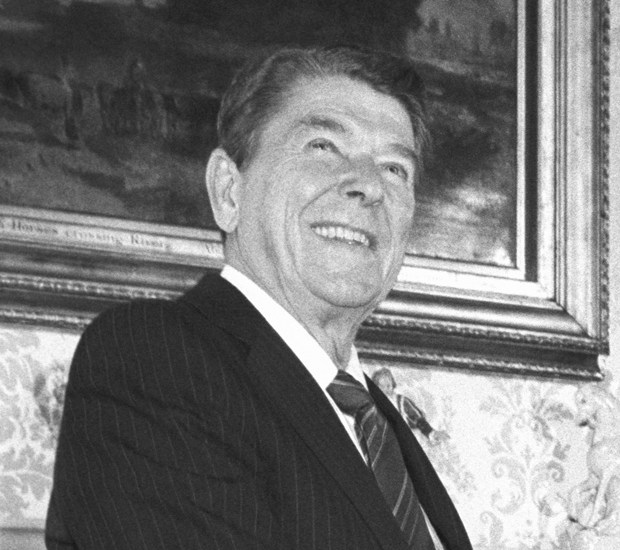The 1980 US presidential election campaign was characterised by warnings from the Carter White House about the impact of a Reagan presidency. At one point, the Democrats charged that Governor Ronald Reagan was ill-equipped to be President, as he had no experience of negotiating with communists. How then, the White House asked, could Reagan negotiate with the Soviets on national security? At the next campaign press conference, the Governor was duly asked whether or not the White House charge was fair. Did he lack experience of negotiating with communists? Reagan stood at the rostrum, characteristically dropped his head to one side and replied, deadpan: ‘No. As Governor, I’ve been obliged on many an occasion to negotiate with the city of Santa Monica.’ The press conference dissolved in laughter as did the White House claim.
This story returned to me as I stood on the beach at Santa Monica, California. It was 82 degrees in the late Californian winter. The state is gripped by a severe, long-term drought, which recent rains have only eased at the margins. This has caused Governor Jerry Brown to call upon Californians to cut their individual water consumption by a figure of 20 per cent. Good luck.
Water security is one of the issues canvassed at this year’s G’Day USA series of events. At the UCLA campus, Ambassadors Kim Beazley and Jeff Bleich deliver a tour de force in looking at the serious challenges which are emerging. The Mekong River is a case in point. The Mekong, like the Brahmaputra, rises in Tibet. As China has 20 per cent of the world’s population but only 7 per cent of the world’s water, diversions of the head waters not only loom as possible but probable. As Bill Clinton would observe: ‘You do the math.’
Travelling between Los Angeles and Palo Alto up US 101, I make a crucial mistake right at the end of my journey and find myself in east Palo Alto, Ca., hopelessly lost. At the local precinct, two cops — one white and one black — come to my aid but first, as an Australian I’m obliged to answer their questions. ‘Do you guys really throw shrimp on the barbie?’ ‘No’, I explain, we talk about prawns. ‘Now tell us the truth about Foster’s beer.’ The truth is explained to the officers, who then proceed to give me precise directions to my hotel and make me feel more than welcome on their watch.
The West Coast Leadership Dialogue is again convened at Stanford University at Palo Alto. As is often the case, technologies dominate the discussion. Google Glass is present as is the emergence of bitcoin, the global digital currency. Linkedin opens up other topics. One tip for the future is that computers will soon be anticipating the interests and motivations of their human controllers. Stanley Kubrick had worked this out way back in 1968 when he made 2001: A Space Odyssey. It seems it won’t be necessary to ask HAL to open the pod bay door. It will just happen.
A San Francisco wine store prepares for either a win or a loss as the 49ers face off against the Seattle Seahawks in the NFL playoffs. Sign reads: ‘Champagne: In success you deserve it: In defeat, you need it.’ Regrettably, the 49ers go down to the Seahawks who then go on to New Jersey and beat the Broncos comfortably 43 to 8.
In El Paso, Texas a briefing is provided by Homeland Security on the seven Mexican drug cartels which dominate that country’s drug trade and its traffic into both the United States and, increasingly, around the globe. It is a truly frightening picture. The Zetas are easily the most troubling of the cartels, being largely made up of former members of Mexico’s Special Forces. Police officers are given an alternative: accept either the silver or the lead.
The Dallas Committee on Foreign Relations, which I have been invited to address, is keenly interested in the Australia/US relationship. Lunch is sponsored by Ambassador Tom Schieffer, who was George W. Bush’s Ambassador in Canberra. It is great to exchange views with an informed and hospitable group of Texans.
The George W. Bush Presidential Library at Southern Methodist University in Dallas is worth a visit. While not in the first rank of presidential libraries, some parts of the institution, particularly those concerned with 9/11, are very moving and George and Laura Bush are to be commended, in the tradition of former American Presidents and First Ladies, for devoting themselves to continuing public service, especially on issues of women’s health.
The best reading in America at the moment is Double Down by Mark Halperin and John Heilemann, the authors of Game Change on the 2008 election; and Robert Gates’s memoir Duty. Both offer extraordinary insights into the government of the American republic and the politics of Washington DC. Predictably, Hillary Clinton looms large over American national politics as 2016 approaches with all deliberate speed.
Got something to add? Join the discussion and comment below.
Get 10 issues for just $10
Subscribe to The Spectator Australia today for the next 10 magazine issues, plus full online access, for just $10.
Stephen Loosley is a former ALP national president and senator.
You might disagree with half of it, but you’ll enjoy reading all of it. Try your first month for free, then just $2 a week for the remainder of your first year.














Comments
Don't miss out
Join the conversation with other Spectator Australia readers. Subscribe to leave a comment.
SUBSCRIBEAlready a subscriber? Log in